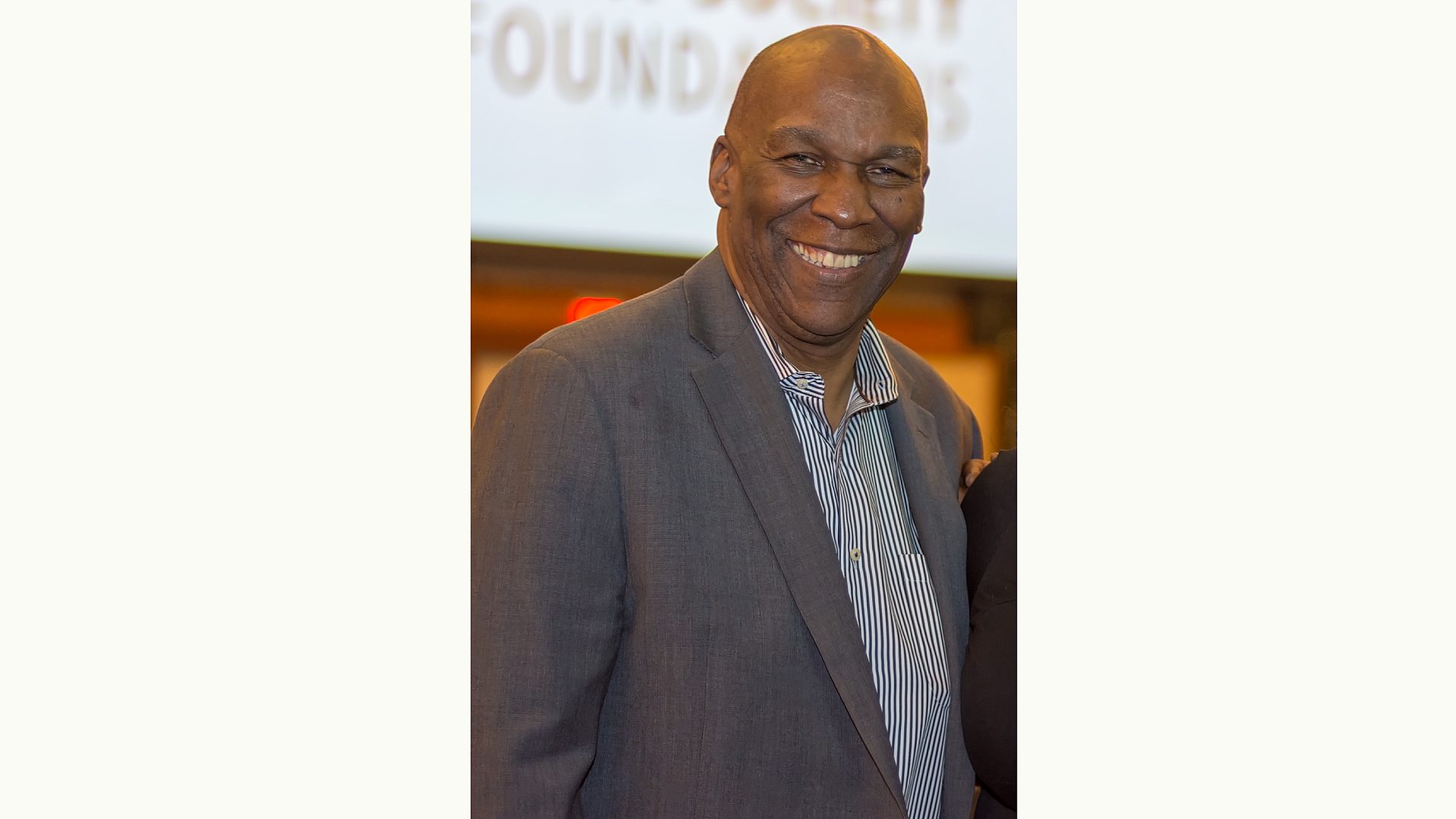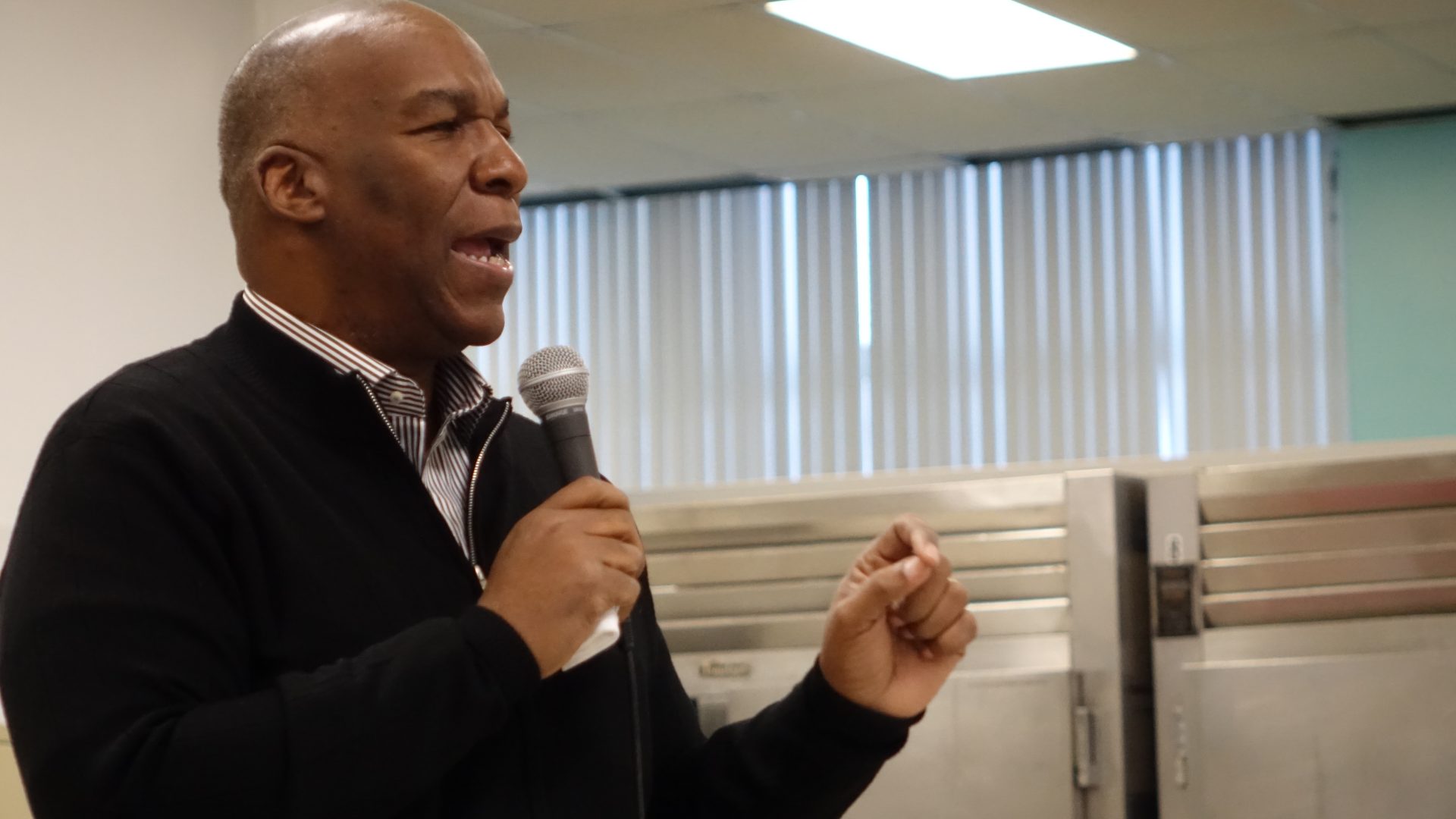Reflections on Juneteenth & Father’s Day from Rev. Dr. Alfonso Wyatt
This weekend, we celebrate Black freedom and fatherhood. For the third year, Juneteenth will be recognized as a federal holiday to acknowledge the emancipation of enslaved African Americans, while the national commemoration of fathers and fatherhood began over 50 years ago. We asked Osborne Board Member Rev. Dr. Alfonso Wyatt – a youth mentor, sought-after public speaker, educator, public theologian, and father figure to many – to reflect on the significance of fathers, freedom, and justice. This interview was edited and condensed.

At the heart of Juneteenth is the idea of celebrating liberation, and for Father’s Day it is recognizing the pivotal role that fathers and father figures play in our lives. How are they related for you? Due to the history of enslavement, why is celebrating Black fatherhood so important?
When we look at the confluence of Father’s Day and Juneteenth, there are some direct relationships and correlations. The whole idea of liberation is born in slavery. We’re in a time now where it is appropriate, if that is the word, to not just discount but to give an alternative view of history. Juneteenth happened. And just because someone would propose that it did not happen does not take away the reality.
The fact that Africans were brought to this country, enslaved, denied even the dignity of being a human being; that families were torn apart; that women were molested and raped, and later on black men were hanged: that is the framework. Given all that has happened, it’s a miracle that African Americans have survived and, for those who were able to, thrived. When I think about Father’s Day, I think about both my father who passed away over a decade ago and I also think of father absence.
Do these holidays provide an opportunity to refute myths and misconceptions about Black fatherhood and Black history, and if so, how?
Unfortunately, the powers that be have the power to create perception and offer it as reality. They will look at the failure, at a small segment, and project that on everybody. And for the unaware who are made aware through these channels, they would believe that every black man is to be feared.
At this advanced age, I still have not lost the ability to scare people. Can you imagine living with that every day of your life? Can you imagine standing at the ATM and people just walk away? Can you imagine walking down the street minding your own business and power locks start to thump? These are not microaggressions. These are assaults on one’s psyche. And yes, there have been Black folk, Black men, Black boys who have made decisions based on pain and perception. Now what is ignored are the fathers that are doing the right thing, be it through marriage or be it through taking care of responsibilities. But you never hear that voice. That world is never communicated.
I turned 17 at Howard University; this was in the 60s. I majored in Civil War and Reconstruction because even then I knew that this period was not a normal time, that it was more than disruptive. It was absolutely destructive. I wanted to know all that I could. We cannot afford to sleep. History tells us that.

Given Osborne’s focus on the criminal legal system, how do you reconcile the celebrations of Black freedom and fatherhood with the racist systems that continue to disproportionately impact Black fathers and rupture families and communities?
One of the reasons I joined Osborne some 25 or 30 years ago is for the reason just stated. It’s one thing to feel that something is wrong and be emotional about it, but it’s another thing to be plugged into an institution that can challenge some of the wrongs in a way that is strategic and effective.
For me, yes, these things exist. And for a person of color, it’s not new, unfortunately. It becomes the reality that you must learn to function in. And everybody’s got a different level and a different vibration as to what functioning means. For me, it is knowing that there are resources. When I would go to Sing Sing to be a speaker [at FamilyWorks graduations], some of the brothers could have been my kids. That program to me was very important. And I was proud that it came out of Osborne. I was proud that even men who may never be released were able to take the program.
Activism is really important. To have leadership that is committed to addressing challenges as best it can within the construct of the time it finds itself is very important. The work of Osborne to help brothers and sisters get back on their feet and strengthen families, and addressing and changing hurtful policies is so important that if Osborne did not exist, it would have to be created.
The coinciding of Father’s Day and Juneteenth is a chance for reflecting on the concept of freedom and fathers’ contributions to successful families and communities. How do fathers and father figures contribute to family success and Black liberation?
I have to speak from my experience thinking about the role of the father. My father came up from the South in the Great Migration. My mom was a sharecropper. They got married when they were very young. My father was a hard worker; I saw him work up to three different jobs. I worked in a factory alongside my father and saw the abuse that he had to go through. I saw the inequity at a very early age. I saw racism.
But I also saw a man that stood up to all of that without losing his dignity. I think it’s important that a father sets the standard for the culture and the climate of the home. I’m saying this on Father’s Day; they may set the standard, but the sisters control the thermostat! Having a father figure in my life up to the time that I began collecting Social Security is something that I treasure, but I also know it’s something that does not happen across the board.
Going back to Black History, Juneteenth, liberation: I believe there are some families that for whatever reason the handcuffs, the shackles have not been removed. For me as a father figure to thousands of people over the course of my lifetime, it comes easily because I recognize the deleterious effect of father absence. When people call me “Pop,” when people call me “Dad,” and some call me “Uncle” – being that male role model is very important. It’s one that I value. And when you value something, you take good care of it. I value the relationships I’ve been able to have with people. It is not judgmental, it is not conditional, and it is not transactional. It’s love, it’s respect, it’s support and recognition.
How will you spend your time this weekend as these important observances take place? What will you be thinking about?
Coming together is really important, but we have to look at family in a broader light. It’s not just the nuclear family; it’s also the people you consider family, who feel like family. Celebrate in a way that elevates: that elevates hopes, that elevates dreams, that elevates aspirations. Keep your bright light shining. Keep the light of hope. Hope is more powerful than many of us could possibly know because it was the hope of the forefathers and foremothers that allowed a people who have had to bear the brunt of brutality beyond measure that allows me to sit here and talk about a period that many of us don’t even know about.
Maybe I’ll close with this: I was asked to lead a delegation of funders from all over the country coming to Queens. I picked a soul food restaurant for lunch. They had a facilitator there and the first question the facilitator asks is, “How far back can you trace your family lineage?” I had brought three or four black men to talk, some from America, some from the Caribbean and Africa. And while people were talking – some went back to the Mayflower, some went back to the potato famine – we looked at each other because we knew that we couldn’t answer that question honestly. And that is the reality that we still face.